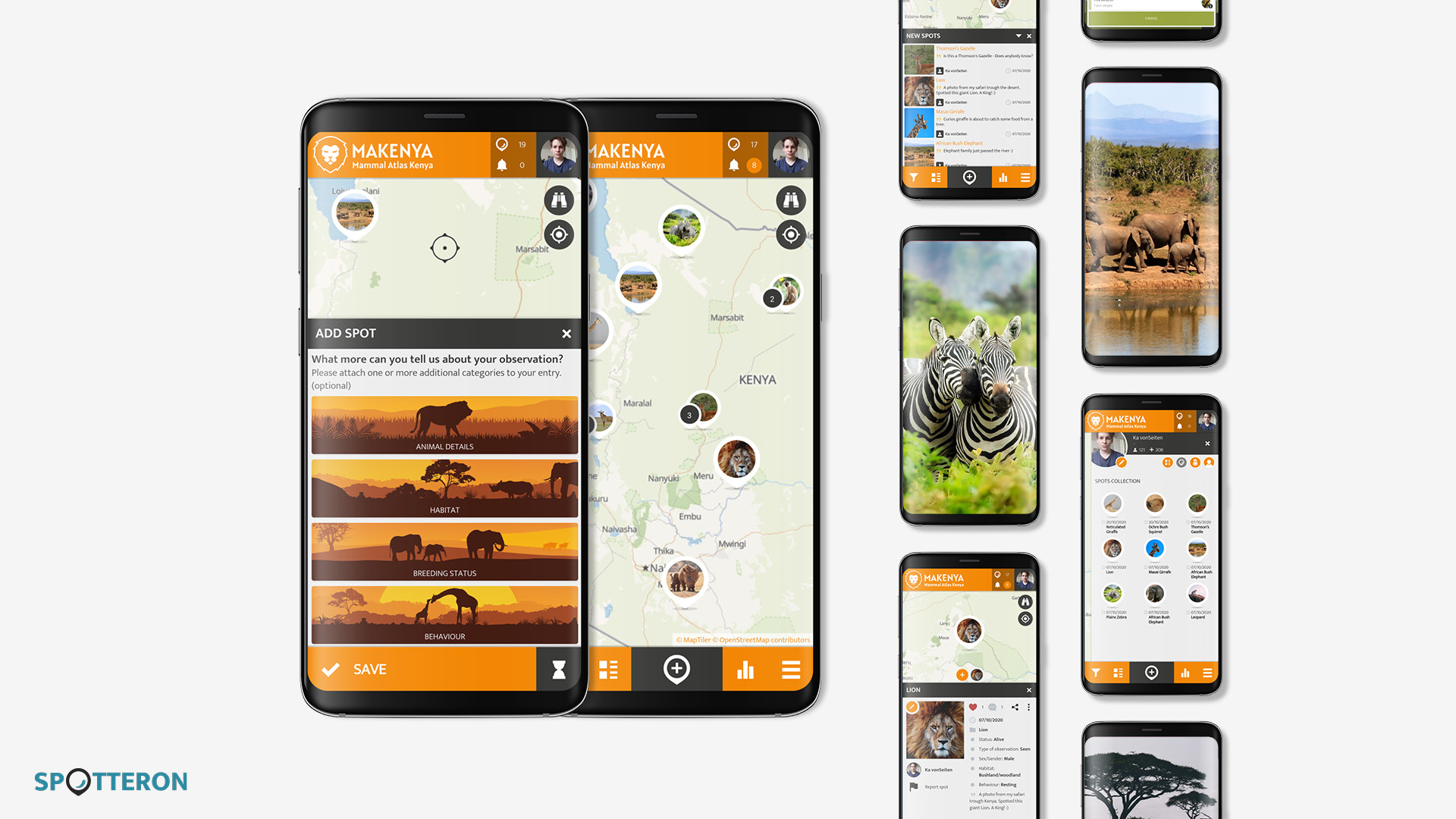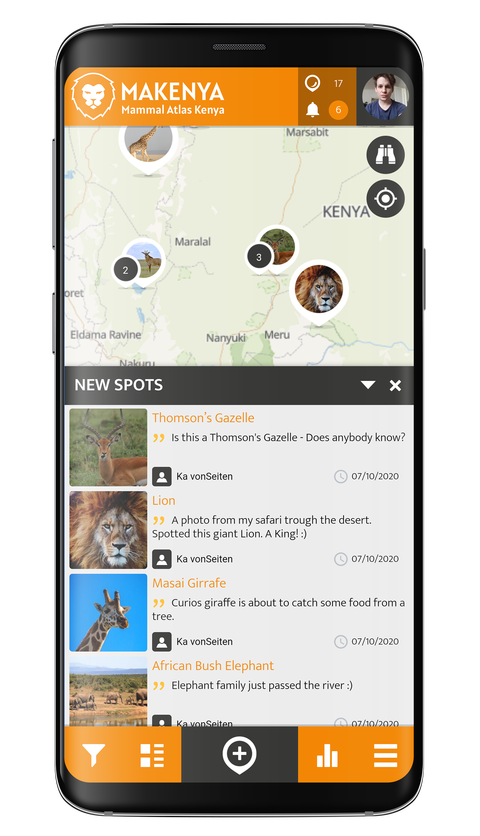Kenya is one of the most important countries in Africa when it comes to the conservation of biodiversity (plants, animals). The country has an extensive network of protected areas, including parks, reserves and forests, private and community sanctuaries, and still some remaining natural areas which still support wild animals. About 390 mammal species occur in Kenya. The distribution of these species in Kenya is not well known by now. Therefore the MAKENYA project aims to involve citizens and scientists by encouraging them to contribute observations. The MAKENYA Mammal Atlas is the first Citizen Science Project of this kind in Kenya. It enables researchers through crowd-based data to produce a distribution map of different mammal species all across the country.
Anybody can be a naturalist - a citizen science app to monitor Kenyan mammals

Anybody with a passion for nature/mammals can be a naturalist. That passion can be manifested in keenness in observations, photography, and documentation of mammals, all of which can contribute vital information for understanding mammals' natural world. In July 2020, Kenya had a population of more than 50 million.
Each year, visitors from abroad come to Kenya on vacations to explore its fascinating wildlife and nature. For example, in 2019 alone, more than 2 million people toured Kenya. Harnessing the power of technology - especially the mobile-based Citizen Science monitoring of mammals - can contribute essential data to understand the distribution of Kenyan mammals. Since mammals occur everywhere - in the air, on land, in water, and underground, in and outside protected areas - any record of mammal species submitted is useful data that can help save that species in the long run.





